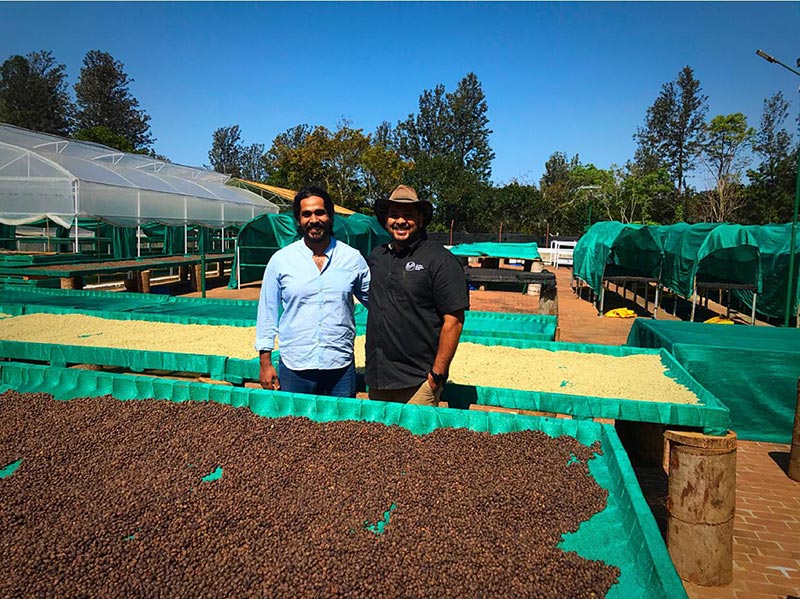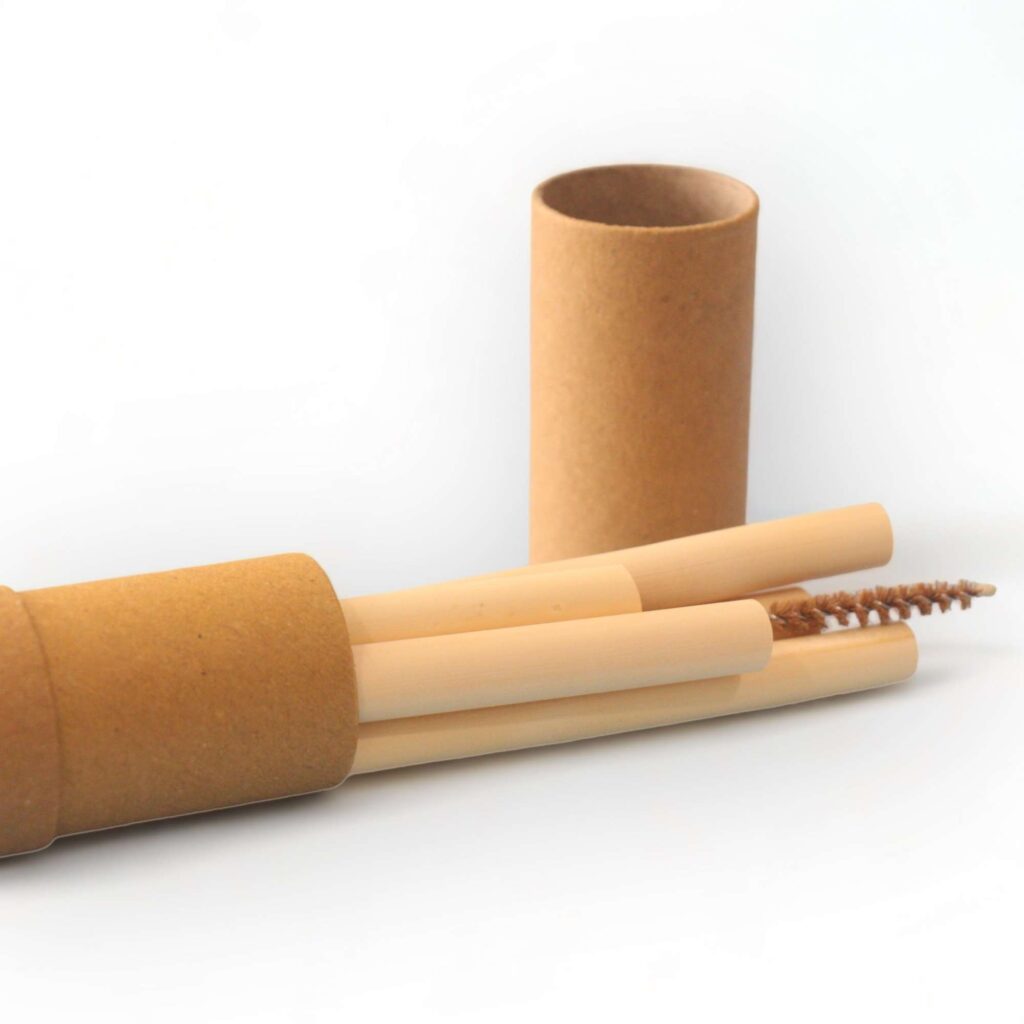Carnatic musician Akshay Vaidyanathan orchestrates a harmonious blend of coffee and music with his homegrown brand, Kāpi Kottai.
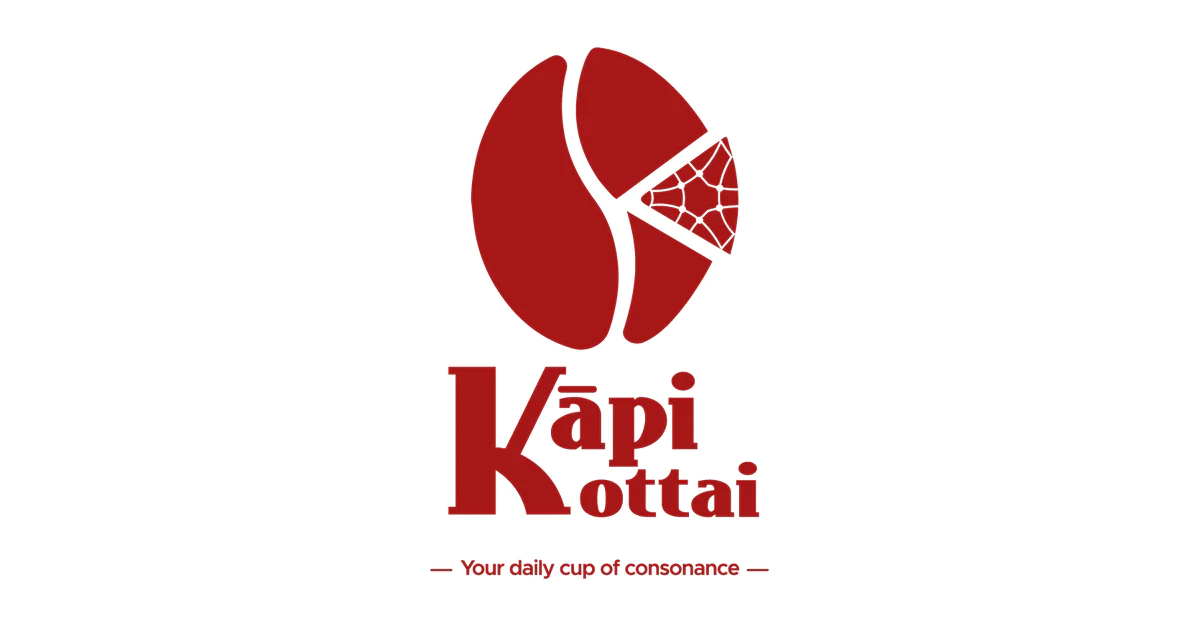
Picture this. You are sitting in your favorite corner of your space, and the mellifluous notes of the raag Khamās fills the air, making your private world an entrancing space. You take a sip from the steaming cup of coffee, and your palate detects rich fruity undertones and a luscious hint of chocolate. You look up and reach out to grab the coffee bag. You discover it bears the same name as the raga. It sets you wondering, “Is there really a genuine connection between these two sensory pleasures? Does coffee taste like the music it is named after?”
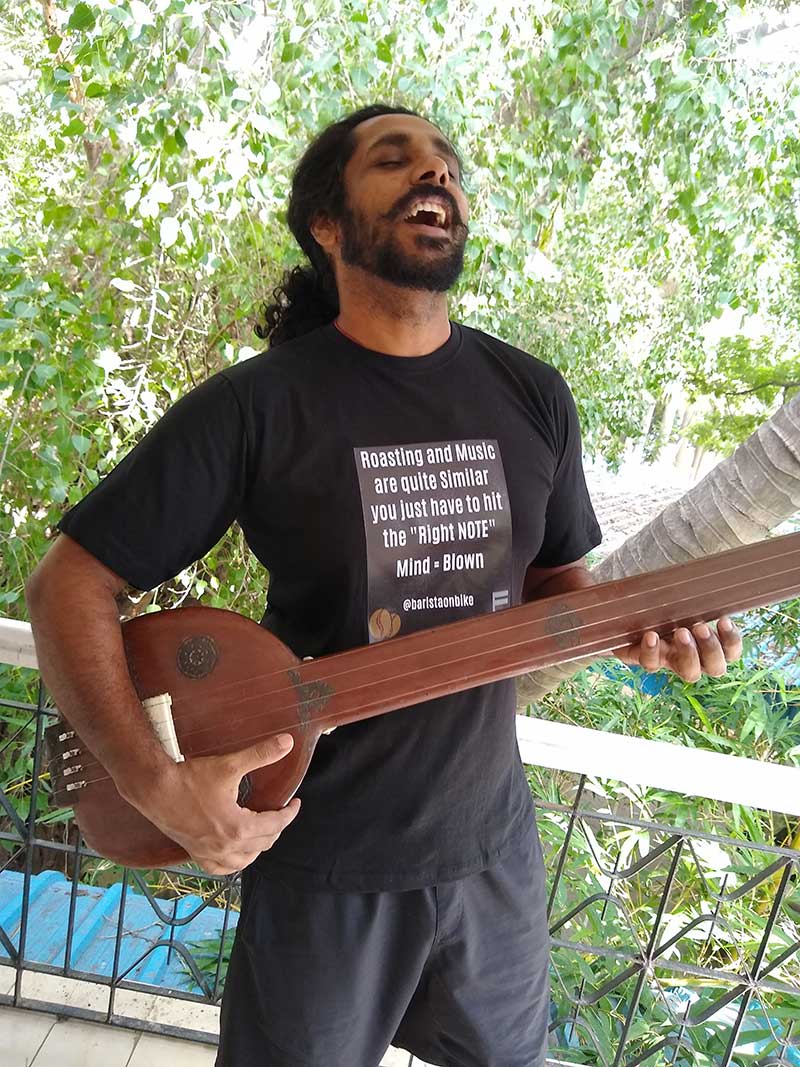
From ragas to roasts
And who else should we turn to ask these questions than the founder of the brand Kāpi Kottai, Chitravina player Akshay Vaidyanathan? “This coffee variant reminded me of the raga Khāmas from the moment I inhaled the roasted beans, and that’s why I chose the name”, he says with a twinkle in his eye.
Khamas is just one blend from an array of coffee offerings from this Chennai-based, homegrown brand established in late 2018. “Some brews carry the essence of Arabi, while others echo the mellowness of Mohanakalyani, and there are those that resonate with Todi. The naming may not follow a strict rationale, but rather an experience similar to synesthesia,” reveals Akshay, who operates this venture from his residence in Kilpauk.
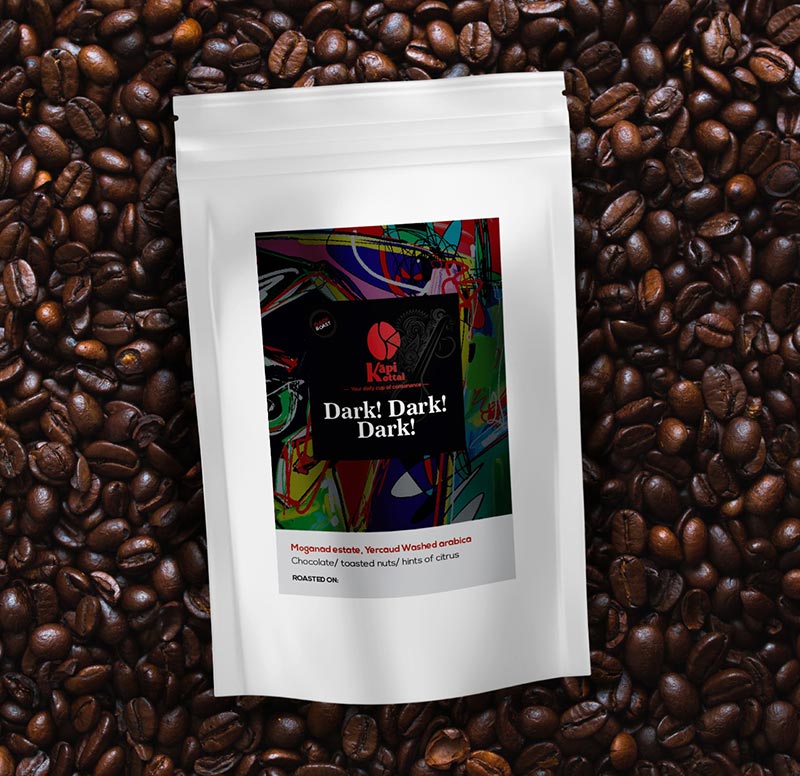
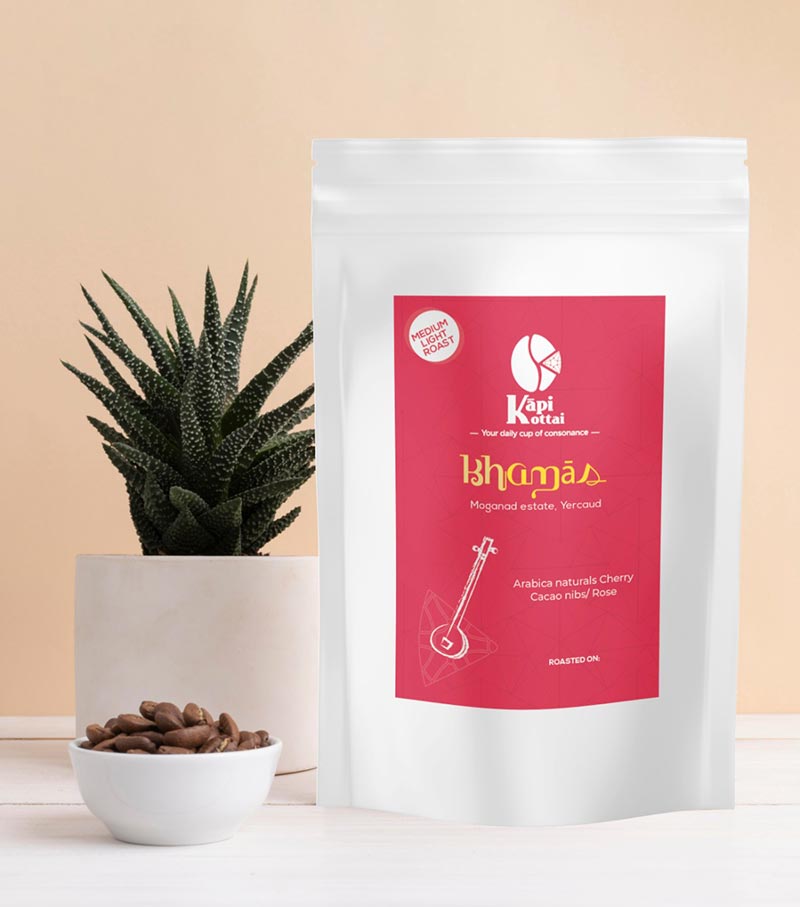
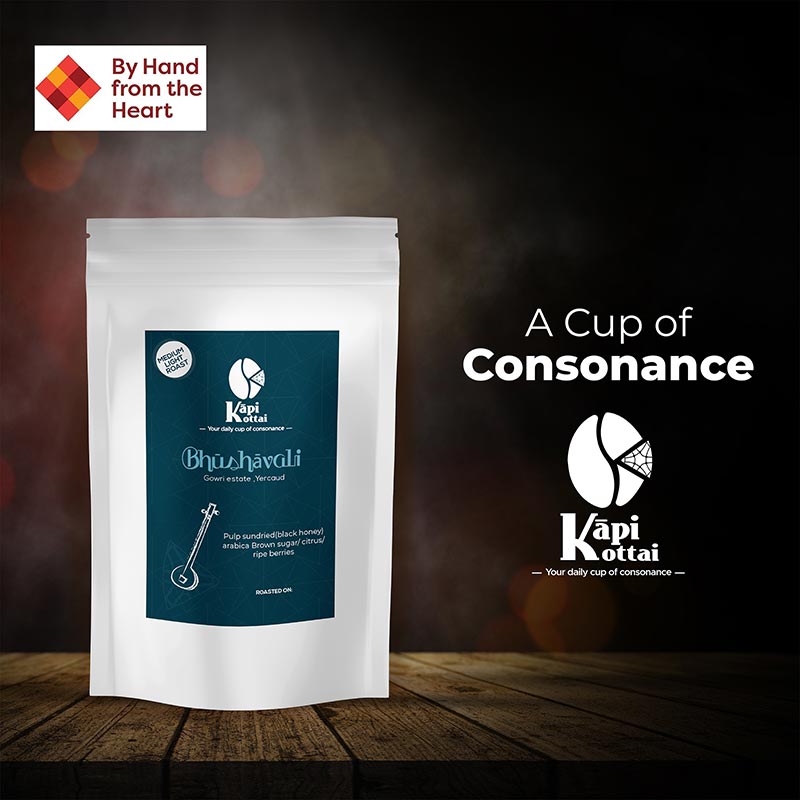
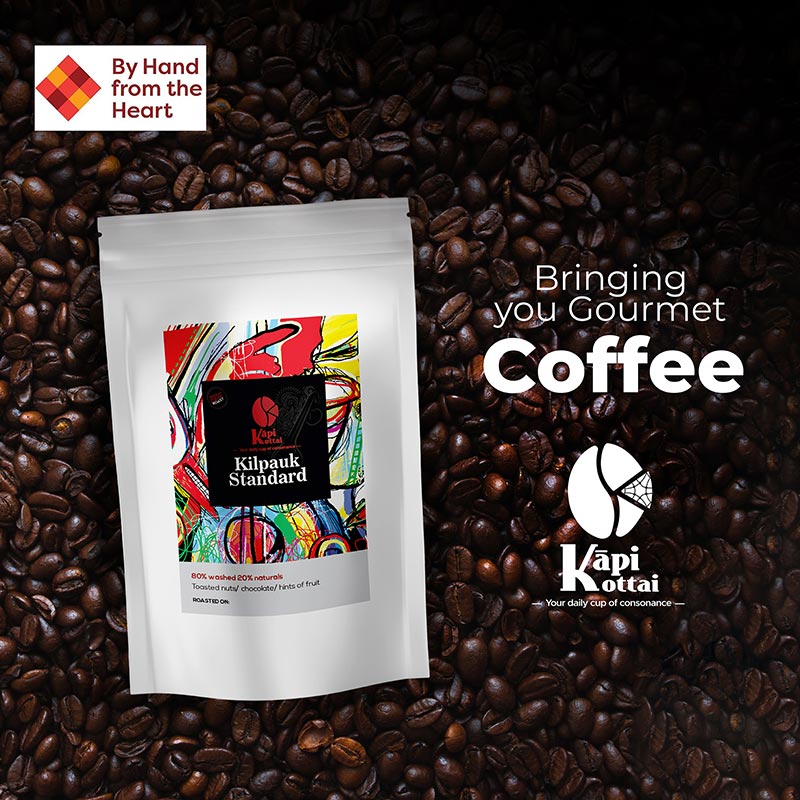
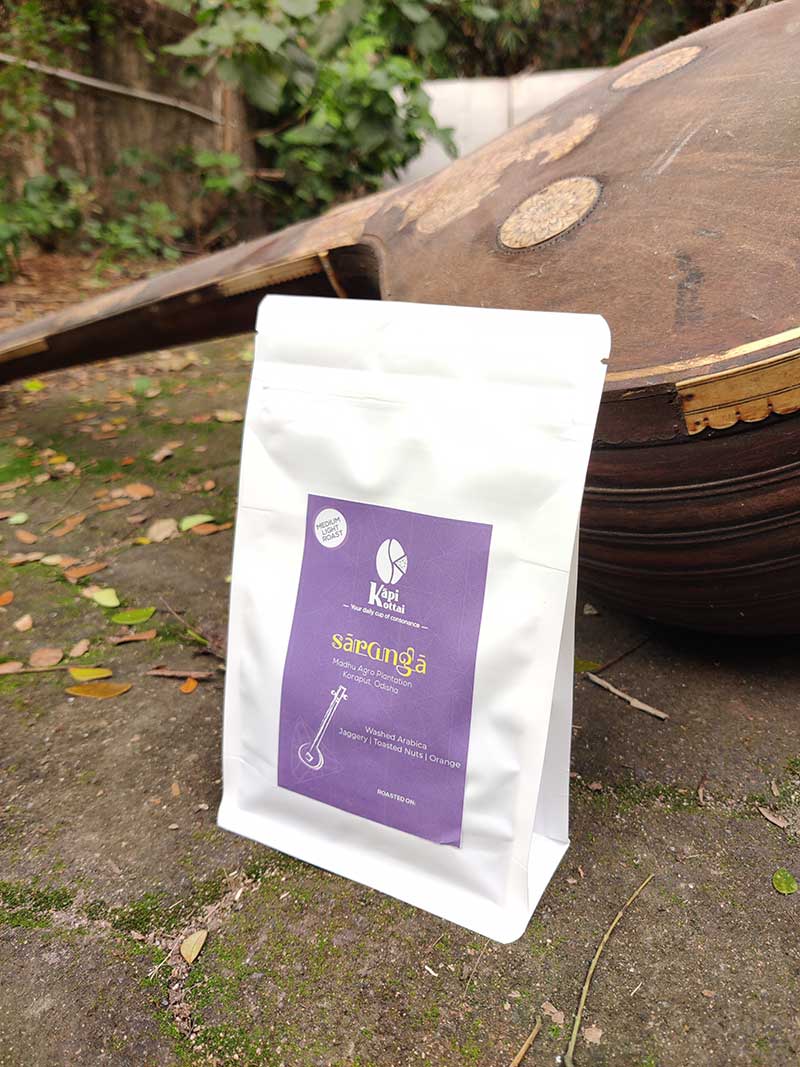
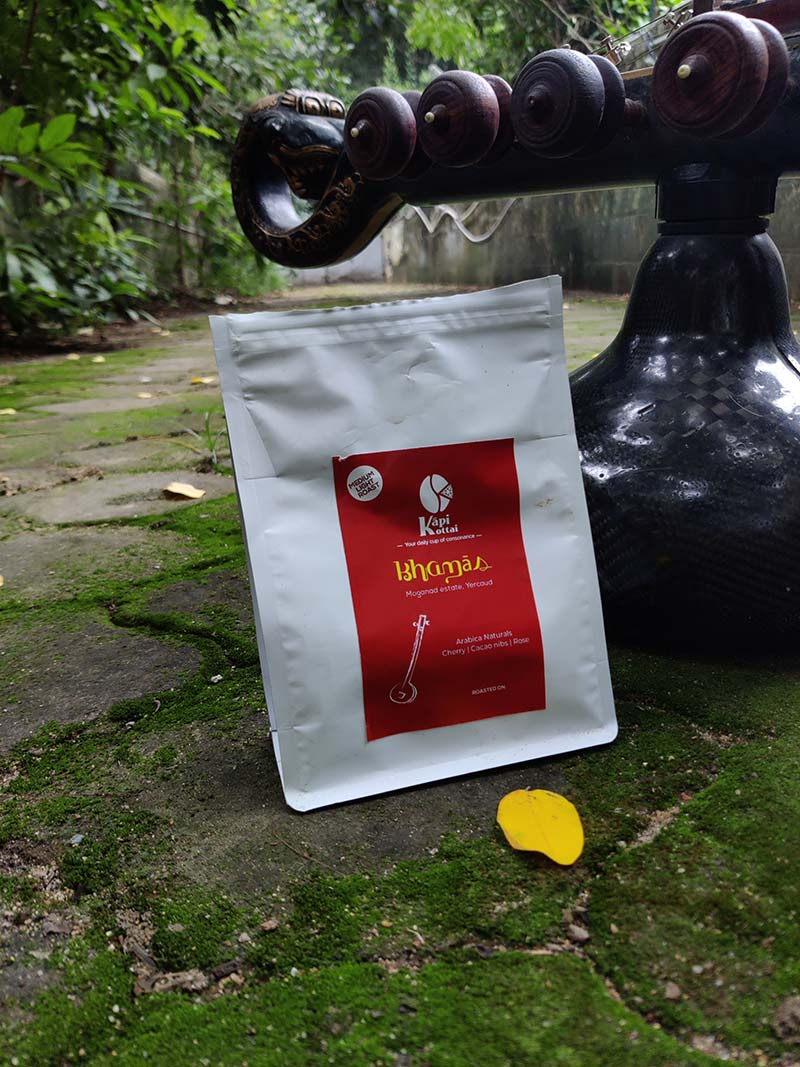
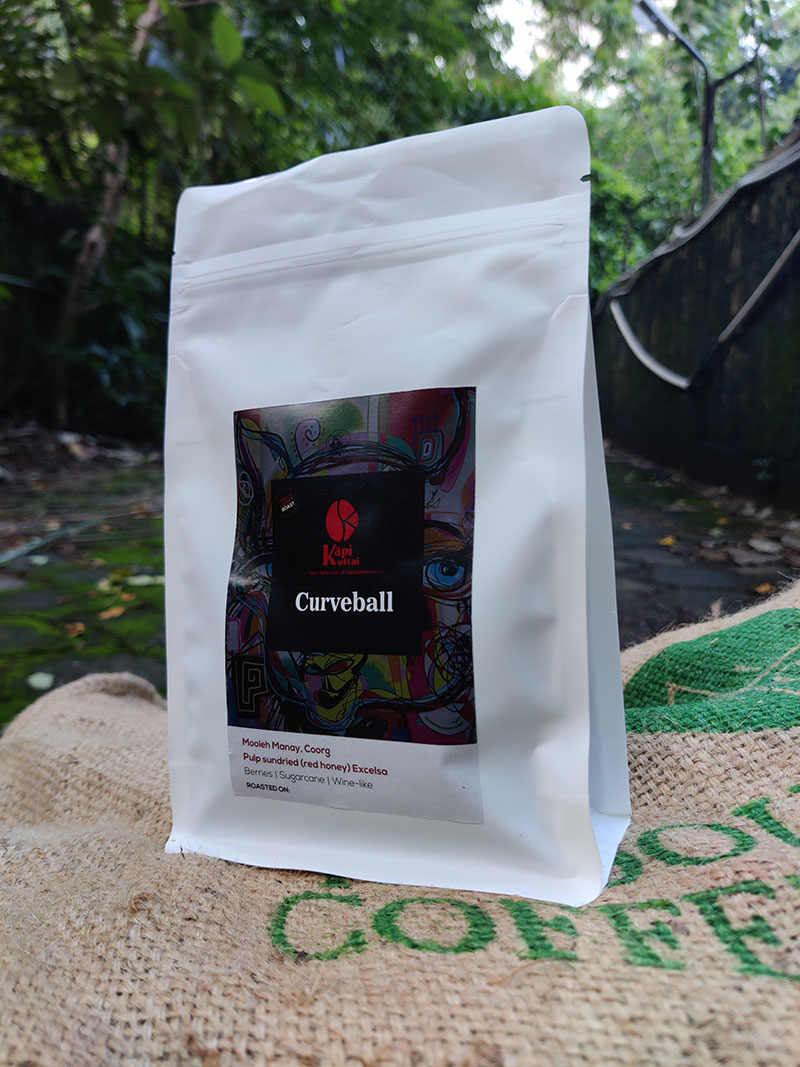
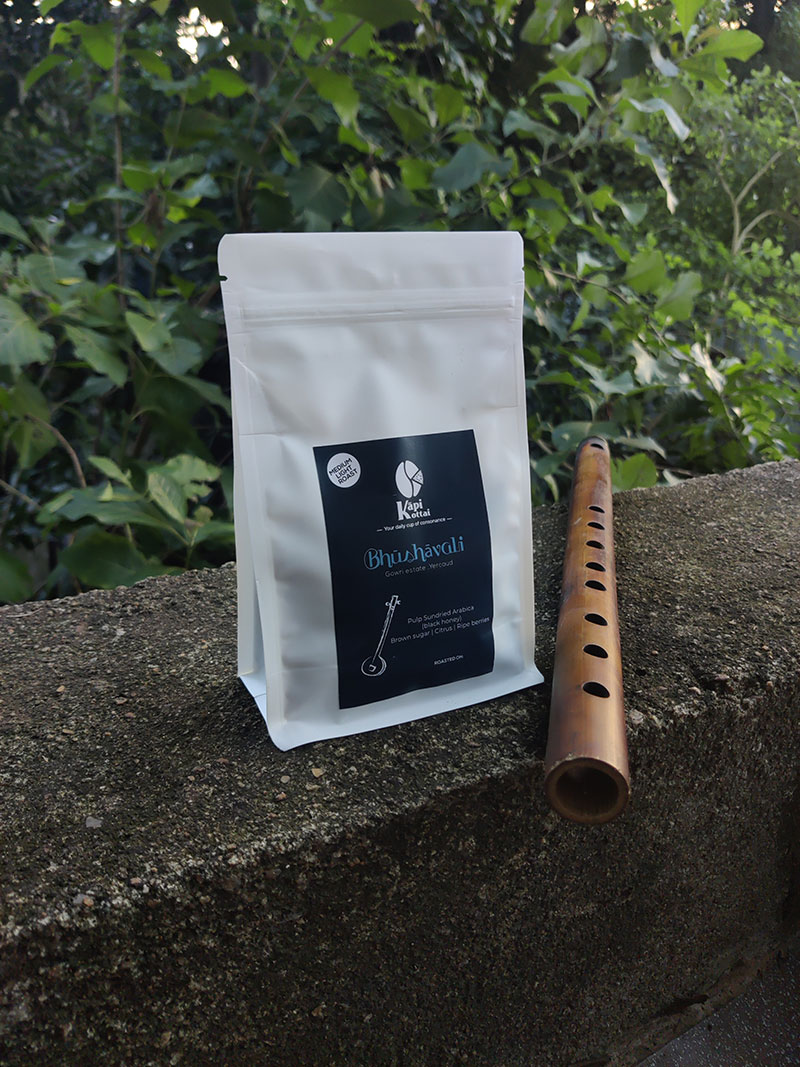
Solopreneur Akshay Vaidyanathan has cultivated a devoted following across Hyderabad, Bengaluru, Mumbai, Delhi, and Chennai for the brand’s intriguing flavours. “There’s more diversity to Indian coffee and specialty coffee is an acquired taste. While the conservative and filter coffee-devoted audience in Chennai is gradually embracing this change, other cities have been more receptive to the world of specialty coffee,” he remarks.
It all started on a day when Akshay found his usual cup of coffee falling short of his expectations. “Much like any classical musician, I had a deep-rooted connection to filter coffee. However, as someone who delves into the intricacies of flavour, I noticed a perplexing inconsistency, with the coffee tasting exceptional one day and lacklustre the next,” Akshay recalls.
Every bean counts
It was this very disparity that compelled him to dive headfirst into the world of artisanal coffee, an industry still in its formative years during that period. “Studying other specialty coffee brands inspired me to start roasting and grinding my own coffee. What started as a side hustle bloomed into a full-fledged business idea. When gigs dried up during the pandemic, coffee sales hit the roof,” he beams.
Kāpi Kottai has been particular about traceability, social equity, and the promotion of environmentally sustainable practices within the Indian coffee ecosystem. The coffee beans are thoughtfully sourced from Akshay’s partner farms, including those in Coorg, Chikmagalur, Yercaud, and several other regions.
Sourcing while sustainable
Of late, shade-grown coffee has emerged as a compelling alternative in the face of climate change as coffee is considered a vulnerable crop. Shade-grown coffee farms offer other advantages — sanctuary to migratory birds, fostering a diverse range of native flora, nurturing nutrient-rich soil, enhancing water retention, and making a positive environmental impact.
Akshay explains, “I’ve compiled a selection of indigenous tree species that I’m eager to experiment with, exploring how they can influence the growth and flavour of coffee. The list includes ficus, jackfruit, and wild jack (Artocarpus hirsutus).”
“Our brand is firmly committed to establishing direct trade relationships with the coffee farms we source from, fostering enduring and symbiotic partnerships with the dedicated growers,” Akshay asserts.
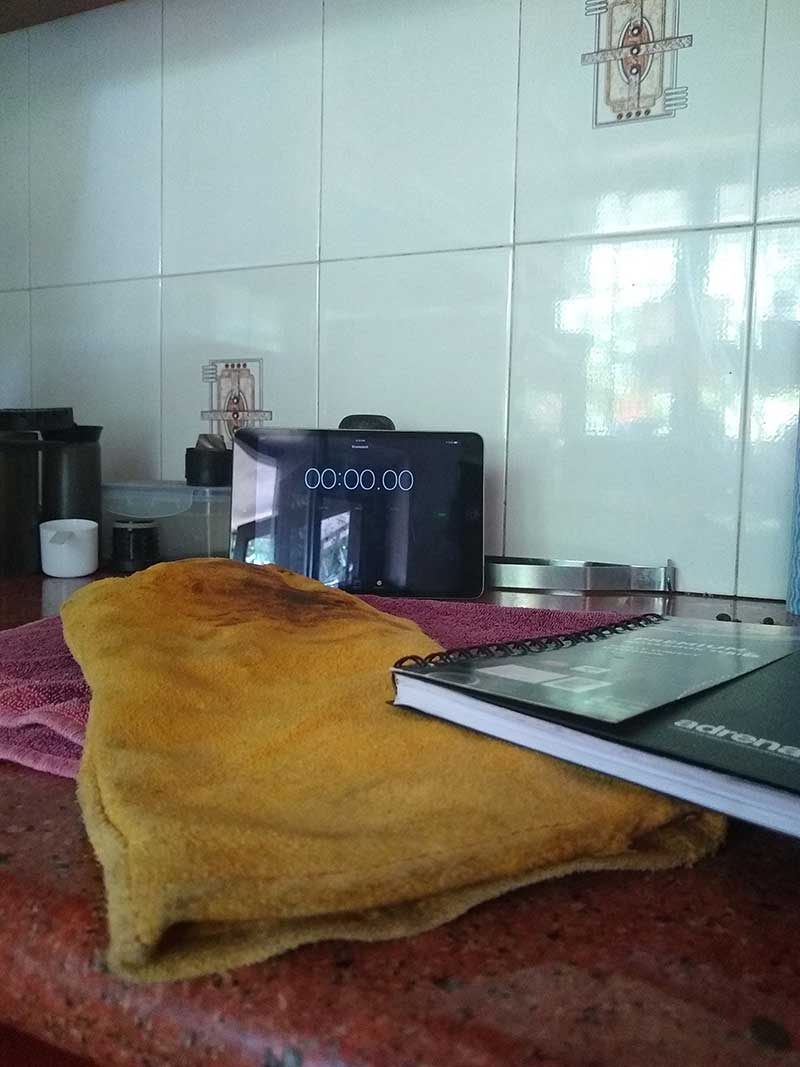
He makes certain that the laborers are compensated at far better rates than the industry norm. “Selecting cherries for specialty coffee is labour intensive finding and handpicking the ripest cherries that are considered the best. This meticulous work requires wielding machetes in tightly enclosed spaces—a time-consuming job. Each method and stage impact the final flavour and profile of the coffee,” he elaborates.
Roasting responsibly
Akshay places incredible importance to the roasting process. He stores the green coffee beans in carefully controlled environment within airtight, climate-controlled packaging.
He currently has deployed an induction-based roastery, the Aillio Bullet R1 V2 compact in size yet impressive in output, made possible by induction technology. “I started with a convection oven for roasting small batches. The oven gave up with increasing demand during the pandemic,” he chuckles.
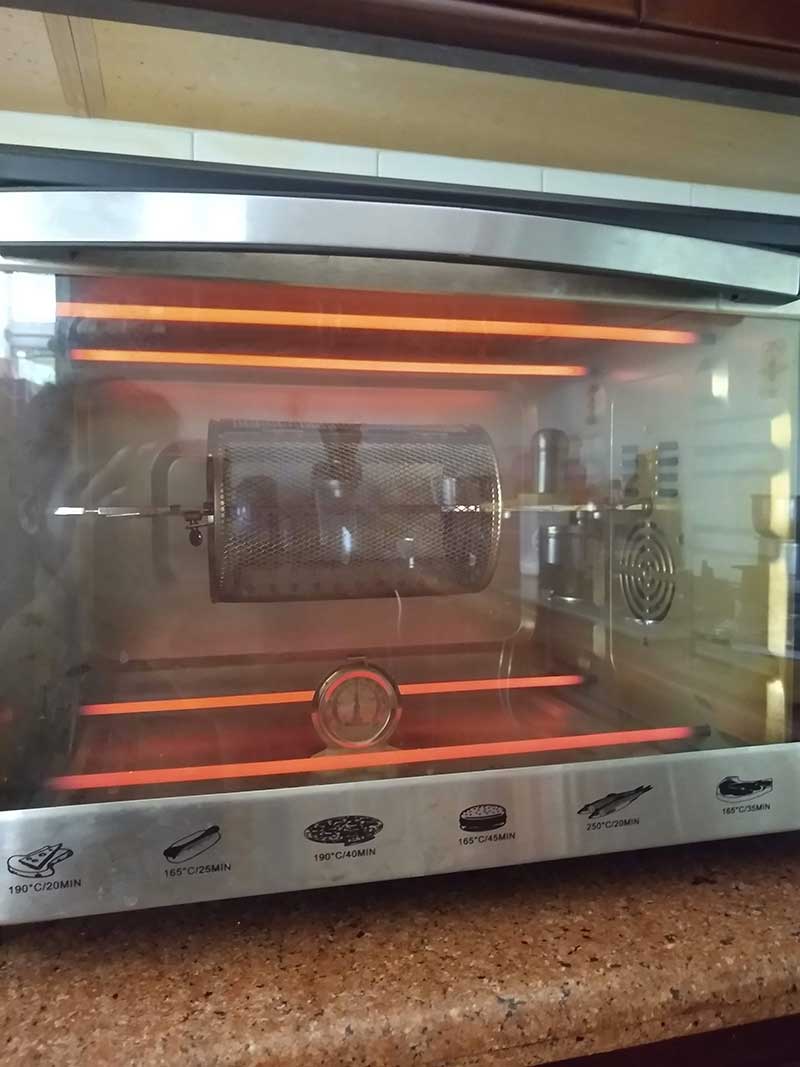
He integrates sustainability in every process – from roasting to packaging and shipping. “I’ve found innovative solutions in several areas, but shipping remains a challenge,” he concedes.
Back to Ragas
Akshay’s guiding principle is to remain true to his passion and have faith in the product. “While there’s no harm in innovation, I’m not inclined to hastily follow the crowd just yet. There’s a certain power in pioneering a trend rather than simply following it, and that’s where my focus lies,” he asserts with confidence.
“I envision opening a café and expanding our range of high-quality coffee variants. Additionally, I’m working on sourcing coffee beans from regions like Koraput and Kodaikanal,” Akshay shares. As a special treat for this Margazhi season, he’s offering discounts on his products.
Looking ahead, Akshay envisions a delightful integration of music and coffee in the form of QR codes on his coffee packets by the next Margazhi. These QR codes will seamlessly guide consumers to a Spotify playlist featuring songs performed by him in the same raga, creating a truly immersive experience. “And who knows,” he muses, “we might even host coffee-tasting sessions alongside our musical concerts.”
For more details, visit: kāpikottai.coffee

